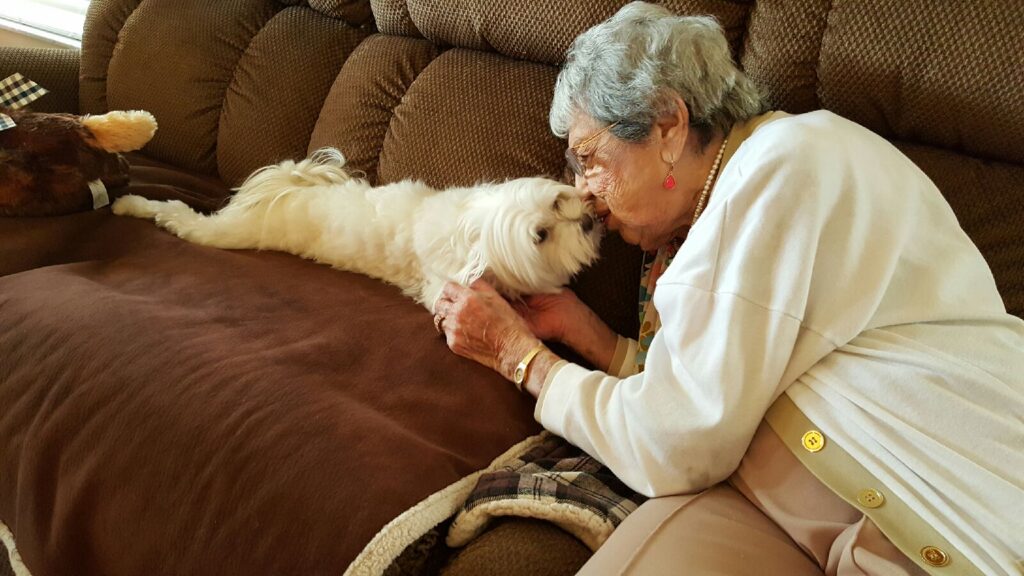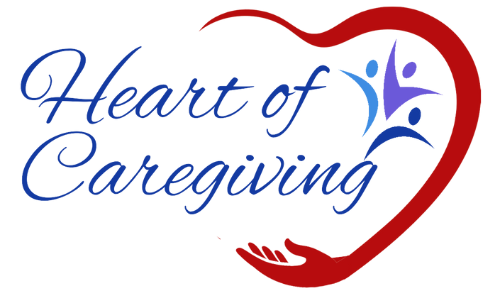Six Ways Pets Contribute to Caregiver Self-Care
Meet Jasmine, my 14-year-old sweet furry companion. She is a tremendous source of joy and self-care. Our pets require care and, in turn, spending time with our pets is a wonderful form of self-care, offering a range of emotional and physical benefits. Incorporating pets into our caregiver self-care routine provides emotional, physical, and social benefits that are essential for sustaining our health and effectiveness in our caregiving role. Pets not only offer companionship and joy but also encourage us to take necessary breaks and engage in activities that promote our well-being.
Here are six ways pets contribute to caregiver self-care:
Stress reduction, emotional support and resilience
As caregivers, we often experience high levels of stress and emotional exhaustion. Pets can offer a much-needed emotional outlet. Their unconditional love and companionship provide a non-judgmental space for us to express our feelings, which can be incredibly therapeutic and enhance emotional resilience.
Interacting with pets, such as petting a dog or cuddling a cat, can significantly reduce stress and anxiety. The act of petting releases oxytocin, a hormone associated with bonding and relaxation, while simultaneously lowering cortisol, a stress hormone. Pets provide unconditional love and companionship, offering a comforting presence that can help alleviate loneliness and depression, that can come with the isolation of being a caregiver.
Encouragement of physical activity
For caregivers with limited time, incorporating pets into our exercise routine can make physical activity more accessible and enjoyable. A quick walk with a dog or playtime with a pet can be integrated into a caregiver’s day, offering a break from caregiving duties and promoting physical health.
Owning a pet, especially a dog, encourages regular physical activity. Daily walks, playtime, and outdoor activities help improve cardiovascular health, maintain a healthy weight, and boost overall fitness. Engaging in physical activities with pets also releases endorphins, which enhance mood and reduce stress.
Improved Social Interaction
Pets can be great social facilitators and can act as a bridge to building a support network. Engaging with other pet owners, either in person or through online communities, can provide us with social interactions and support outside our caregiving responsibilities.
Walking a dog or visiting pet-friendly places often leads to interactions with other pet owners and animal lovers. These social interactions can combat feelings of isolation and improve social skills, fostering a sense of community and belonging and alleviating feelings of isolation.
Routine and Structure
Caring for a pet adds a positive aspect to our daily caregiving routine, creating a balance between caregiving duties and personal life. Regular feeding times, exercise schedules, and grooming activities provide structure to the day, helping us stay organized and focused. This balance can help prevent burnout by ensuring that we have regular, enjoyable activities that are just for us, fostering a sense of normalcy and control. This sense of responsibility and routine can enhance feelings of stability and purpose beyond our caregiving responsibilities.
Mindfulness and Presence
Pets can serve as a reminder for us to take mindful breaks. Spending a few minutes focusing on a pet’s behavior or engaging in play can provide a mental break from caregiving tasks, allowing us to reset and recharge. Simply sitting together can be a form of meditation, helping us to slow down and appreciate the present. This practice of mindfulness can reduce stress and anxiety and improve overall mental well-being.
Shared joy
Pets can also benefit our care recipients, providing them with companionship and joy, which can, in turn, create a more positive caregiving environment. Seeing a loved one happy and engaged with a pet can be uplifting for us as caregivers and enhance our emotional well-being.
This is a photo of Mom giving and receiving love from Jasmine. I cherish these memories.

For more on caregiver self-care and other solutions for caregivers’ common mistakes, check out 21 Mistakes Caregivers Make & How to Avoid Them: Solutions and Strategies to Reduce Stress and Increase Happiness, available on Amazon! Are you looking for a dynamic speaker on caregiver empowerment? Go to my speaking page, and let’s connect!
The advice offered is for general information only; please consult your healthcare team, legal, or financial advisors for guidance.


